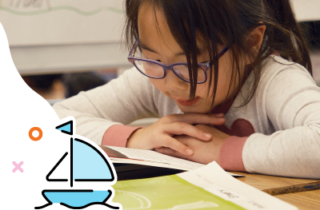Presented by Kelly A. Powell-Smith, Ph.D., NCSP, Professor of Reading Science, Mount St. Joseph University
Presented by Susan Lambert, Chief Academic Officer of Elementary Humanities, Host of Science of Reading: The Podcast, Amplify
Assessing student knowledge does not need to happen just at the end of the year—a practice that delivers data too late to enhance teaching and learning. Instead, assessing student progress throughout the year can substantially grow academic success.
Presented by Krystal Smith, Education Innovation Manager, Montana Office of Public Instruction; Dr. Julie Murgel, Chief Program Officer, Montana Office of Public Instruction; Khaled Ismail, Principal, Education First; and Ashley Eden, Senior Vice President, State Partnerships, Business Development and Policy, New Meridian
The sudden release of ChatGPT to the general public in November of 2022 presented a number of new challenges to educational leaders, forcing them to add consideration of artificial intelligence (AI) systems to their to-do lists, which were already too long.
Presented by Dr. Matthew Murphy, Retired Superintendent, Ramsey School District (NJ); Dr. Chandra Orrill, Executive Director, Rethink Learning Labs; and Dr. Erik Gundersen, Superintendent, Suffern Central School District (NY)
Moderated by Larry Cocco, Senior Professional Learning Consultant, edWeb.net
Presented by Eric Carbaugh, Ph.D., Faculty, ASCD
Presented by Eric Carbaugh, Ph.D., Faculty, ASCD
Presented by Eric Carbaugh, Ph.D., Faculty, ASCD
Presented by Dr. Gene Kerns, Vice President and Chief Academic Officer, Renaissance; and Dr. Sarah Brown, MTSS Consultant and Author









